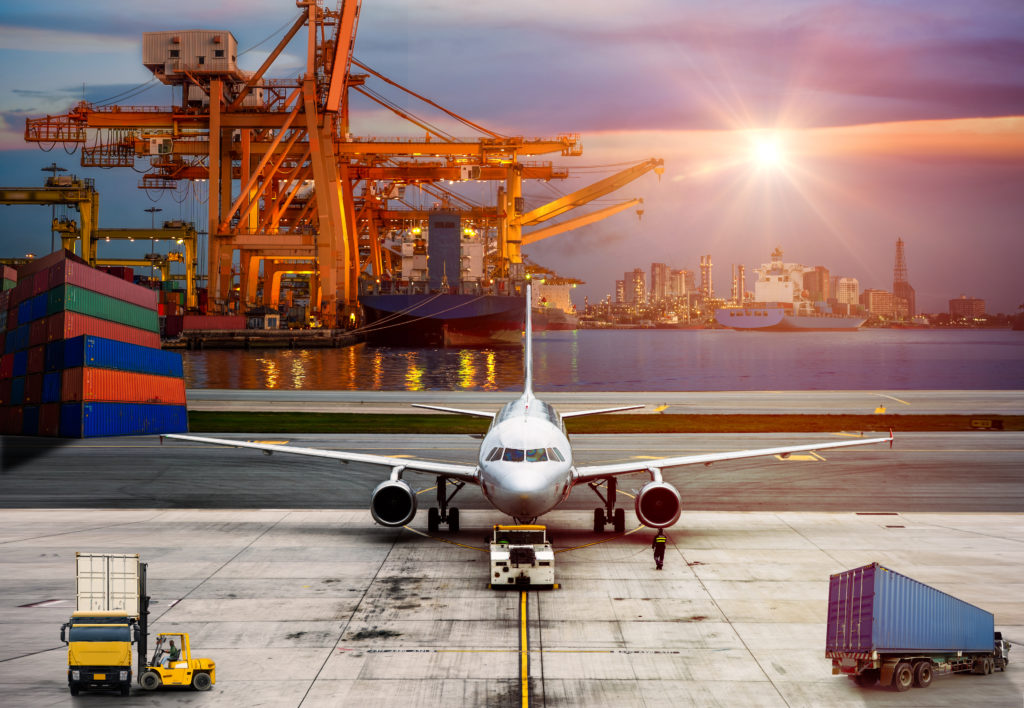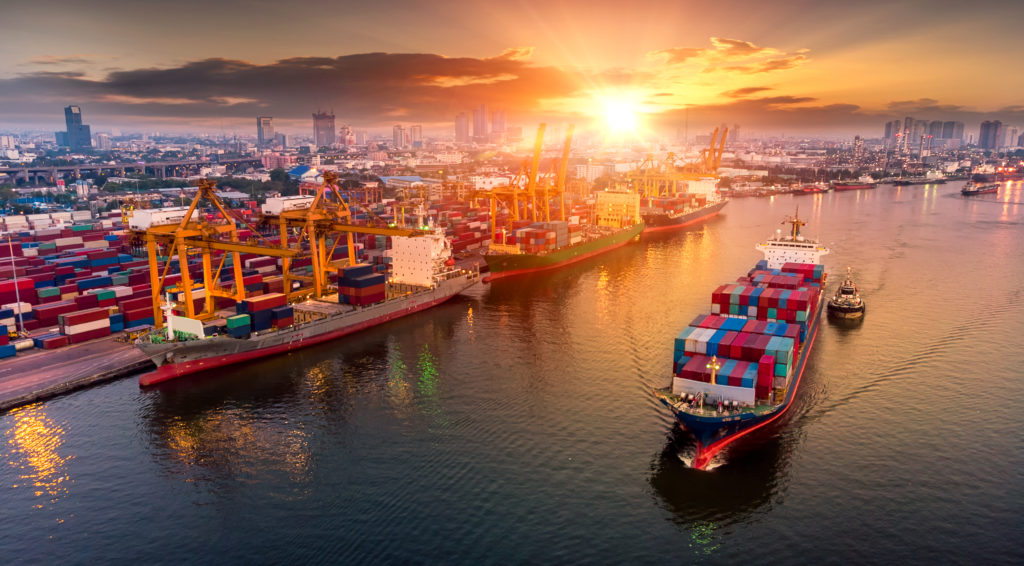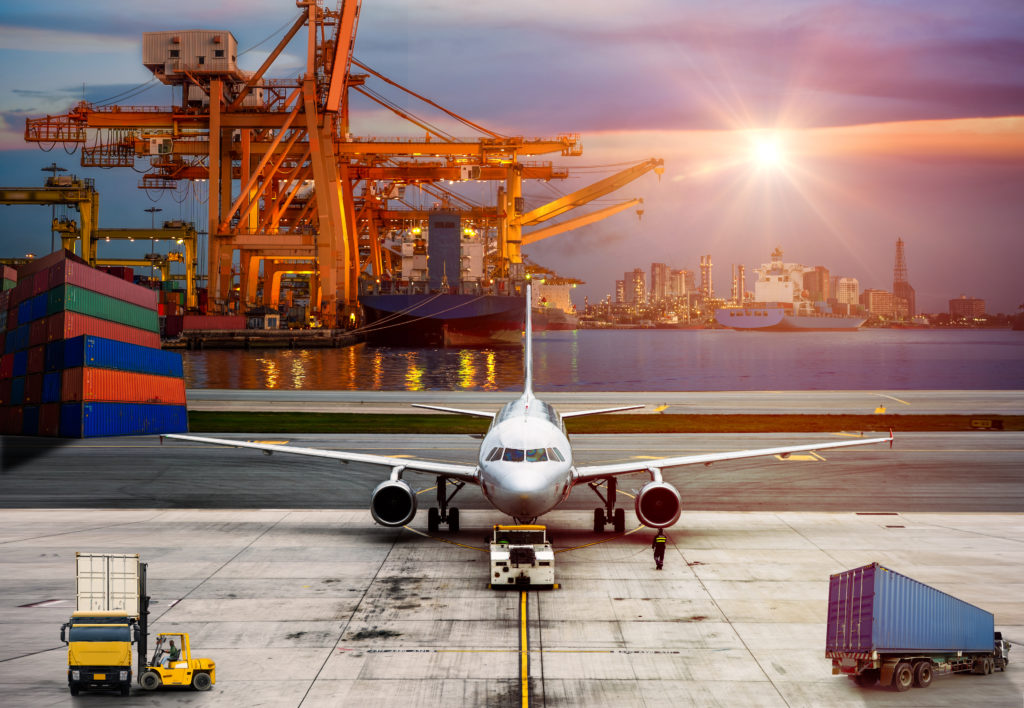EPA Regulated Products
U.S. Environmental Protection Agency (EPA) Regulated Products
Importing EPA-Regulated Products
Importing products into the US is a complex process, especially when it comes to EPA-regulated products. The US Environmental Protection Agency (EPA) is responsible for regulating a wide range of products that can potentially harm the environment or public health. Importers of EPA-regulated products must comply with various regulations and requirements to ensure that their products meet US standards.
In this guide, we'll walk you through the steps you need to take to import EPA-regulated products into the US. Whether you're a seasoned importer or new to the process, this guide will provide valuable insights and expert advice to help you navigate the regulations and requirements with ease.
Step 1: Determine if your product is EPA-regulated
The first step in importing EPA-regulated products is to determine whether your product is regulated by the EPA. The EPA regulates a wide range of products, including pesticides, chemical substances, and hazardous waste. To determine if your product is regulated, you can search the EPA's online database or consult with an EPA expert.
Step 2: Obtain the necessary permits and certifications
Once you've determined that your product is EPA-regulated, you'll need to obtain the necessary permits and certifications to import it into the US. Depending on the type of product, you may need to obtain a pesticide registration, a TSCA certification, or a hazardous waste permit. Make sure to research the specific requirements for your product and obtain the necessary permits and certifications before importing.
Step 3: Ensure compliance with EPA regulations
Importers of EPA-regulated products are required to comply with various EPA regulations, including recordkeeping and reporting requirements. Make sure to keep accurate records of your product's importation, use, and disposal, and report any incidents or violations to the EPA as required.
Step 4: Work with a reputable customs broker
Importing EPA-regulated products can be a complicated and time-consuming process. Working with a reputable customs broker can help streamline the process and ensure compliance with all relevant regulations and requirements. Make sure to choose a customs broker with experience in importing EPA-regulated products and a proven track record of success.
Importing EPA-regulated products into the US can be a challenging process, but it's an essential step in ensuring that your products meet US standards and regulations. By following the steps outlined in this guide and working with a reputable customs broker, you can successfully import your products while complying with all relevant EPA regulations and requirements.
A variety of laws and regulations govern import and export requirements for commodities, including vehicles and engines, fuels, ozone depleting substance, hazardous wastes, pesticides, and chemical substances, which may pose a risk to human health and the environment. Environmental Protection Agency (EPA) works with the states, tribes, other federal agencies, and foreign governments to ensure compliance with laws governing the import and export of these materials. EPA programs which regulate these imports and exports reported through Automated Commercial Environment (ACE) are:
- Vehicles and Engines – Office of Transportation and Air Quality
- Pesticides, Pesticidal Devices – Office of Pesticide Programs
- Ozone Depleting Substances, Hazardous Waste – Office of Air and Radiation
- Chemicals and Chemical Substances under the Toxic Substances Control Act (TSCA) – Office of Pollution Protection and Toxics
EPA Import Requirement for Vehicles and Engines
The Clean Air Act prohibits import into the U.S. of any motor vehicle, motor vehicle engine, non-road engine, or equipment that does not conform to EPA emission standards and requirements. U.S. EPA emission standards have been in effect:
- for light-duty motor vehicles since 1968,
- heavy-duty on-highway engines since 1970,
- motorcycles since 1978,
- non-road engines since 1996,
- marine engines since 1997, and
- recreational vehicles (dirt bikes, ATVs, ORUVs, and snowmobiles) since 2006.
These standards apply to new or used vehicles and engines, including imported motor vehicles, heavy-duty engines, non-road engines, and recreational vehicles manufactured either domestically or abroad.
In-Depth Coverage: Importing Medical Device
EPA Import Requirement for Pesticides
The Federal Insecticide, Fungicide, and Rodenticide Act (FIFRA) provides the U.S. Environmental Protection Agency (EPA) with the authority to oversee the distribution, sale, and use of pesticides and pesticide devices. In accordance with the regulations in 40 CFR Parts 150-189, pesticides must be registered with EPA, unless they are exempt under FIFRA. Imported pesticides must also be registered, except those that are exempt from regulation under FIFRA or meet conditions specified in 40 CFR 152.30. All pesticides must be distributed with their label.
U.S. Customs and Border Protection (CBP) Regulations implement the import notification requirements for pesticides and devices under FIFRA section 17 (c). The provisions in 19 CFR 12.110-117 apply to registered pesticides, unregistered pesticides, and pesticide devices. The regulations require an importer, desiring to import pesticides or devices, to submit EPA Form 3540-1, Notice of Arrival of Pesticides and Devices (NOA), to EPA prior to the arrival of the shipment in the United States. On the NOA, importers must provide the registration status of the pesticide, the active ingredients and their percent composition, the quantity of the pesticide chemical, and additional required data.
In-Depth Coverage: Importing Cosmetics
Toxic Subtances Control Act (TSCA)
Under the Toxic Substances Control Act (TSCA), EPA has the authority to regulate the manufacture (including import), processing, use, distribution in commerce, and disposal of chemical substances and mixtures that present, or will present, an unreasonable risk to human health or the environment. If you import chemical substances, mixtures or articles into the U.S., you are subject to the Toxic Substances Control Act (TSCA) and generally must meet the same requirements under TSCA as a chemical manufacturer in the United States.
It is important that you are in full compliance with all applicable TSCA regulations and other relevant statutes (e.g., Clean Air Act, Resource Conservation and Recovery Act, Federal Insecticide, Fungicide and Rodenticide Act) before you import TSCA-covered chemical substances, mixtures, or articles into the United States. Non-compliance with TSCA can result not only in detained shipments and/or denied entry, but can lead to substantial civil and/or criminal penalties.
Importers must certify that imported chemicals either comply with TSCA (positive certification) or, if not otherwise clearly identified as a chemical excluded from TSCA, are not subject to TSCA (negative certification).
TSCA Title VI Certifications
The TSCA Title VI final rule sets formaldehyde emission standards for three types of composite wood products (i.e., panels of hardwood plywood, particleboard, medium density fiberboard, and thin-medium density fiberboard). The TSCA Title VI import certification requirement applies to composite wood products, component parts containing such composite wood products, and finished goods containing such composite wood products that are imported into the U.S. beginning March 22, 2019.
The TSCA Title VI import certification requirement does not apply to chemicals otherwise regulated under TSCA which may be present in imported articles.
In-Depth Coverage: Marketing and Advertising Compliance
- Federal Trade Commission (FTC) Advertising Rules
- Made in USA Standard
- FTC Regulation on Environmental Claims
- Adverting and Marketing on the Internet
- Label Claims for Conventional Foods and Dietary Supplements
- Dietary Supplement Advertising: What is FTC's Truth-in-Advertising Law?
- USDA Country of Origin Labeling (COOL)
- FTC Rules & Regulations on Food Advertisement
In-Depth Coverage: Country of Origin
- Country of Origin of Imported Merchandise
- Customs Ruling: Country of Origin
- Country of Origin: Food Products
- Country of Origin: Chemical and Pharmaceutical Products
- Country of Origin & Country of Manufacture: CBP vs. FDA
- Country of Origin: Substantial Transformation or Country of Assembly Test
- Country of Origin and Free Trade Agreement
- Country of Origin and Section 301
In-Depth Coverage: USDA-Regulated Products
- Importing USDA-Regulated Food Products
- Import Regulation by USDA Agricultural Marketing Service (AMS)
- Food Products – FDA or USDA Regulated
- Country of Origin Labeling
- Importing Animals, Animal Products, and Biologics into the US
- Importing Meat, Poultry, and Egg Products into the US
- Labeling and Marking of Imported Meat, Poultry, and Egg Products
- USDA National Organic Program (NOP)
- Agricultural Safeguards and USDA Licensing
In-Depth Coverage: Customs Valuation
Quick Link To U.S. Customs & Import Requirements
Customs Clearance and Import Requirements
- Entry of Imported Merchandise
- What is Section 321 Entry?
- What is Automated Commercial Environment (ACE)
- What is an Automated Broker Interface (ABI)?
- Who is Ultimate Consignee?
- What is Non-Resident Importer Program?
- Country of Origin of Imported Merchandise
- What is the Country of Assembly?
- What if the FDA's Country of Manufacture?
- Marking of Country of Origin on U.S. Imports
- What is Customs Bond?
- Reconciliation Prototype and Bond Rider
- Who Needs a Customs Broker?
- What is Customs Ruling Program?
- Classification of Imported Goods
- How is imported merchandise appraised?
- What are Import Quotas?
- What are Trade Remedy Duties?
- Antidumping Duty (AD) and Countervailing Duty (CVD)
- What is Foreign Trade Zone (FTZ)?
- What is Importer Security Filing (ISF)?
- What is Temporary Importation under Bond (TIB)
- What is In-Bond Process?
FDA-Regulated Products and Import Requirements
- What is Food Safety Modernization Act (FSMA)?
- Prior Notice of Imported Foods
- Food Facility Registration
- Risk-Based Preventive Controls for Human Food
- Risk-Based Preventive Control for Animal Food
- Standards for the Growing, Harvesting, Packing, and Holding of Produce for Human Consumption
- What is Foreign Supplier Verification Program (FSVP)?
- Protect Food against Intentional Adulteration
- FDA Regulated Product in Foreign Trade Zone (FTZ)
- Entry Review Process for FDA Regulated Products
- Country of Origin VS Country of Manufacture
- Foods Regulated by FDA or USDA: What is the Difference?
- Label and Labeling Claims for Conventional Food and Dietary Supplements
- What is USDA Country of Origin Labeling (COOL)?
- Import for Export of FDA Regulated Products
- FDA Regulated Products in Personal Baggage or Sending by Mail or Courier
- International Mail Facility (IMF) and FDA Regulation
- Importing Biological Product Regulated by CBER
- Importing Cosmetics and Voluntary Cosmetic Registration Program (VCRP)
- Importing Drugs into the U.S.
- Importing OTC Drugs into the U.S.
- Importing Veterinary Drugs into the U.S.
- Importing Tobacco Products into the U.S.
- Importing Medical Devices into the U.S
- Importing Food Products into he U.S.
- Importing Radiation-Emitting Products into the U.S.
Guidance on customs & logistics solution for traditional and e-commerce importers and exporters
Importer Security Filing (ISF)
An ISF is required when cargo (ocean only) laden on vessel at a foreign port is destined for shipment to the U.S. Under ISF rule, some importing information and details regarding cargo must be transmitted to the CBP at least 24 hours before goods are loaded onto the vessel.
Freight Forwarding
Looking for a freight forwarding partner? To move your cargo from its current location through customs to its final destination we will partner with you to find the best way for your business. Whatever your transportation, logistics or customs clearance needs, we will do our best to customize a solution for your needs.
Customs Clearance
All goods imported into the U.S. are required to be declared to CBP. Our customs broker will help you stay in compliance with customs laws and regulations and clear your goods quickly and efficiently with our electronic Automated Commercial Environment (ACE) and Automated Broker Interface (ABI) Single Window System.
Warehousing & Distribution
Our warehouse facility offers great potential for serving as a regional hub with over 145,000 SF storage capacity close to Los Angeles Airport & Los Angeles/Long Beach Sea port. With our extensive experience in freight services, your import/export cargo will be handled quickly and effectively.
Section 321 Entry
Section 321 entry allows importing free of duty and tax for shipments imported by one person on one day having a fair retail value in the country of shipment not more than $800. We provide our resident and non-resident clients with dedicated ACE eManifest solutions for Section 321 entry of all modes of transportation.
Non-resident Importer Program
If you want to sell your products in U.S. marketplaces, but you are a business owner located outside of the U.S. and do not have an entity or presence in the U.S., you need to be established as a Foreign Importer of Record before your products can be imported into the U.S. We can help you.
Design your own logistics
To move your cargo from its current location through customs to its final destination we will partner with you to find the best way for your business.




















